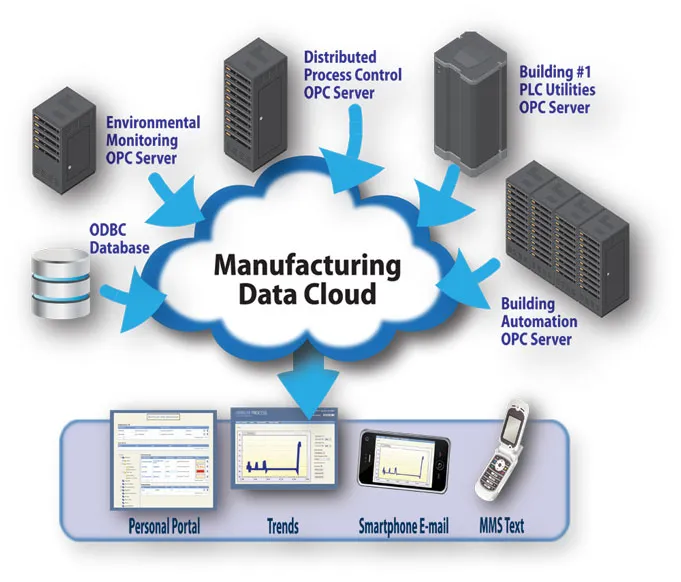-
أخر الأخبار
- استكشف
-
Zones
-
المجموعات
-
المناسبات
- 2 المنشورات
- 2 الصور
- 0 الفيديوهات
- Web Marketing Executive لدى Market Research Future
- يعيش في New York
- من New York
- درس MCA لدى USA Universityفئة من A
- 31/12/1998
- متابَع بواسطة 0 أشخاص
التحديثات الأخيرة
- Cloud Manufacturing: Revolutionizing the Future of Smart Production
Cloud manufacturing is an innovative approach that integrates cloud computing technologies with advanced manufacturing processes. It allows manufacturers to access, manage, and optimize production resources and services over the internet. This digital transformation promotes real-time collaboration, scalable operations, and enhanced efficiency across global supply chains.
Source -https://www.marketresearchfuture.com/reports/cloud-manufacturing-market-6004
As businesses shift toward Industry 4.0, cloud manufacturing plays a crucial role in delivering flexible and intelligent production systems. It breaks down geographical barriers, supports resource sharing, and improves cost control, making it a preferred choice for modern enterprises.
Key Features of Cloud Manufacturing
Cloud manufacturing combines principles of cloud computing with smart manufacturing. It includes:
Resource Virtualization: Virtualized manufacturing equipment, software, and data can be accessed and shared on-demand.
Service-Oriented Architecture: Production processes are delivered as services, allowing for customization and reuse.
Scalability: Enterprises can scale up or down based on demand without investing in additional physical infrastructure.
Interconnectivity: Seamless integration with IoT devices, big data analytics, and AI enhances decision-making and productivity.
These features help companies streamline operations, minimize downtime, and ensure agile manufacturing processes.
Benefits of Cloud Manufacturing
The adoption of cloud manufacturing offers numerous advantages, including:
Reduced Costs: By minimizing the need for physical infrastructure and enabling resource sharing, companies save on capital and operational expenditures.
Improved Collaboration: Teams from different locations can work together in real-time, enhancing innovation and efficiency.
Real-Time Monitoring: With integrated IoT and analytics, manufacturers gain visibility into operations for timely interventions.
Faster Time-to-Market: Agile production and supply chain adjustments enable quicker product rollouts.
Enhanced Flexibility: Companies can respond quickly to market changes and customer demands.
These benefits make cloud manufacturing an essential component of smart factory systems and digital transformation.Cloud Manufacturing: Revolutionizing the Future of Smart Production Cloud manufacturing is an innovative approach that integrates cloud computing technologies with advanced manufacturing processes. It allows manufacturers to access, manage, and optimize production resources and services over the internet. This digital transformation promotes real-time collaboration, scalable operations, and enhanced efficiency across global supply chains. Source -https://www.marketresearchfuture.com/reports/cloud-manufacturing-market-6004 As businesses shift toward Industry 4.0, cloud manufacturing plays a crucial role in delivering flexible and intelligent production systems. It breaks down geographical barriers, supports resource sharing, and improves cost control, making it a preferred choice for modern enterprises. Key Features of Cloud Manufacturing Cloud manufacturing combines principles of cloud computing with smart manufacturing. It includes: Resource Virtualization: Virtualized manufacturing equipment, software, and data can be accessed and shared on-demand. Service-Oriented Architecture: Production processes are delivered as services, allowing for customization and reuse. Scalability: Enterprises can scale up or down based on demand without investing in additional physical infrastructure. Interconnectivity: Seamless integration with IoT devices, big data analytics, and AI enhances decision-making and productivity. These features help companies streamline operations, minimize downtime, and ensure agile manufacturing processes. Benefits of Cloud Manufacturing The adoption of cloud manufacturing offers numerous advantages, including: Reduced Costs: By minimizing the need for physical infrastructure and enabling resource sharing, companies save on capital and operational expenditures. Improved Collaboration: Teams from different locations can work together in real-time, enhancing innovation and efficiency. Real-Time Monitoring: With integrated IoT and analytics, manufacturers gain visibility into operations for timely interventions. Faster Time-to-Market: Agile production and supply chain adjustments enable quicker product rollouts. Enhanced Flexibility: Companies can respond quickly to market changes and customer demands. These benefits make cloud manufacturing an essential component of smart factory systems and digital transformation.0 التعليقات 0 المشاركات 4518 مشاهدة 0 معاينة1 الرجاء تسجيل الدخول , للأعجاب والمشاركة والتعليق على هذا!
الرجاء تسجيل الدخول , للأعجاب والمشاركة والتعليق على هذا! - 0 التعليقات 0 المشاركات 658 مشاهدة 0 معاينة2

المزيد من المنشورات





